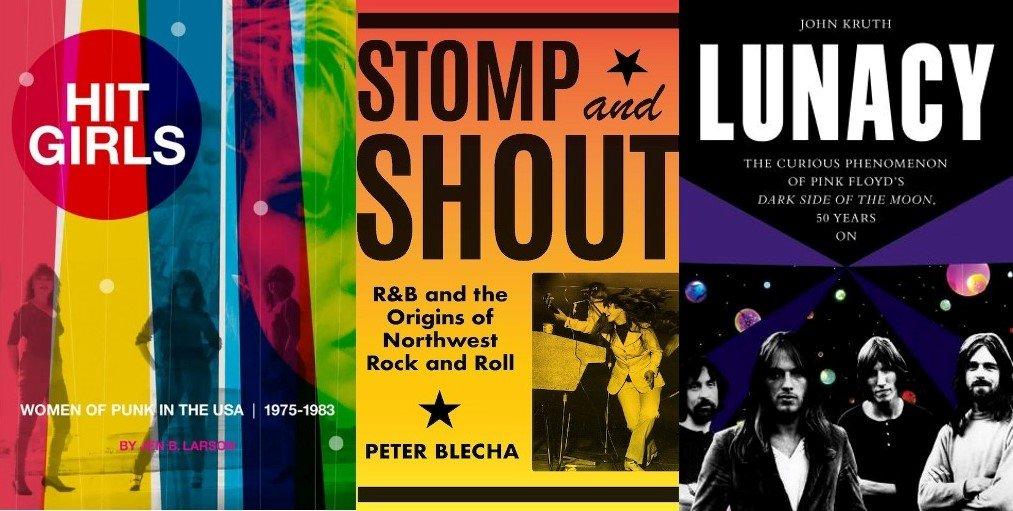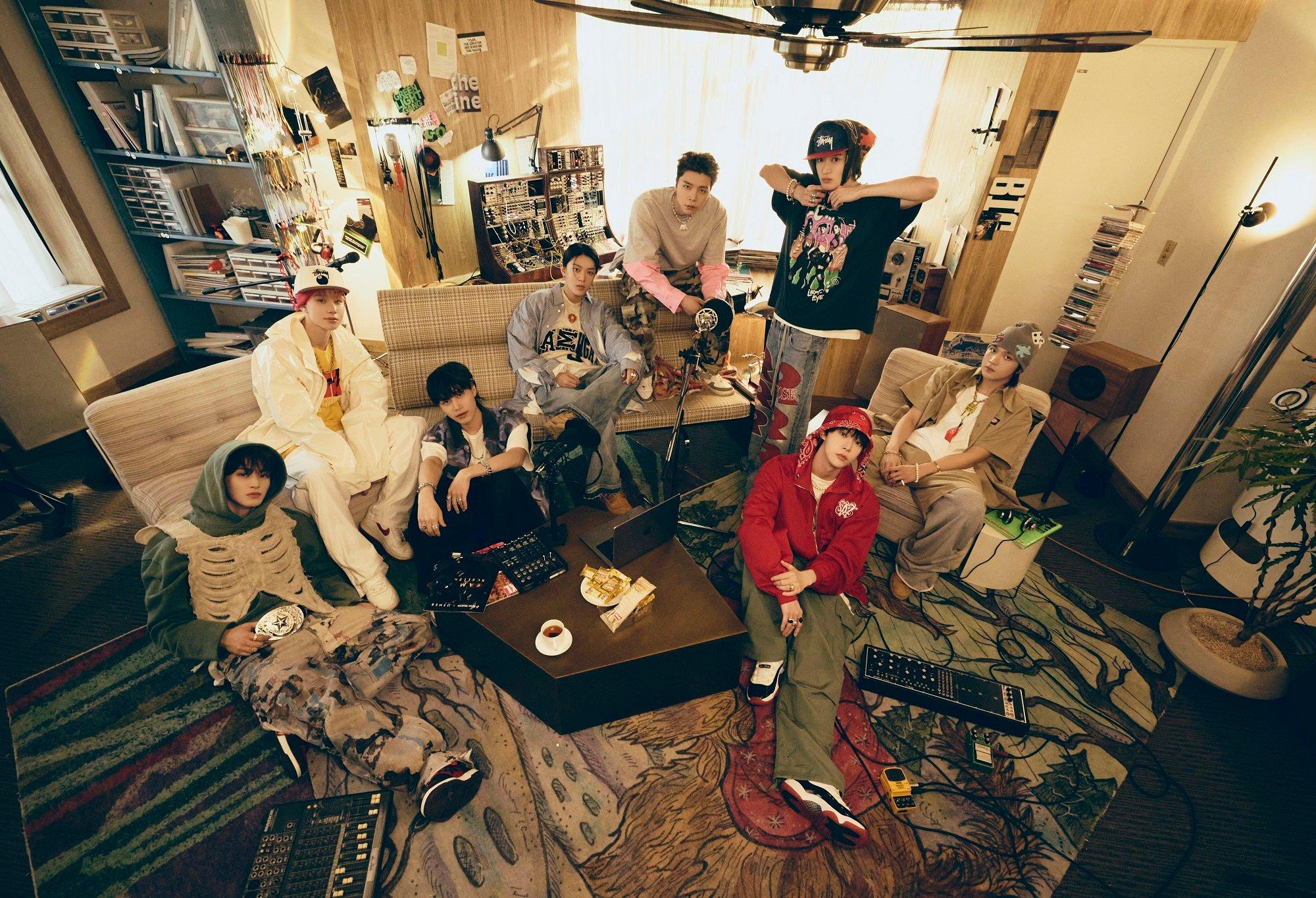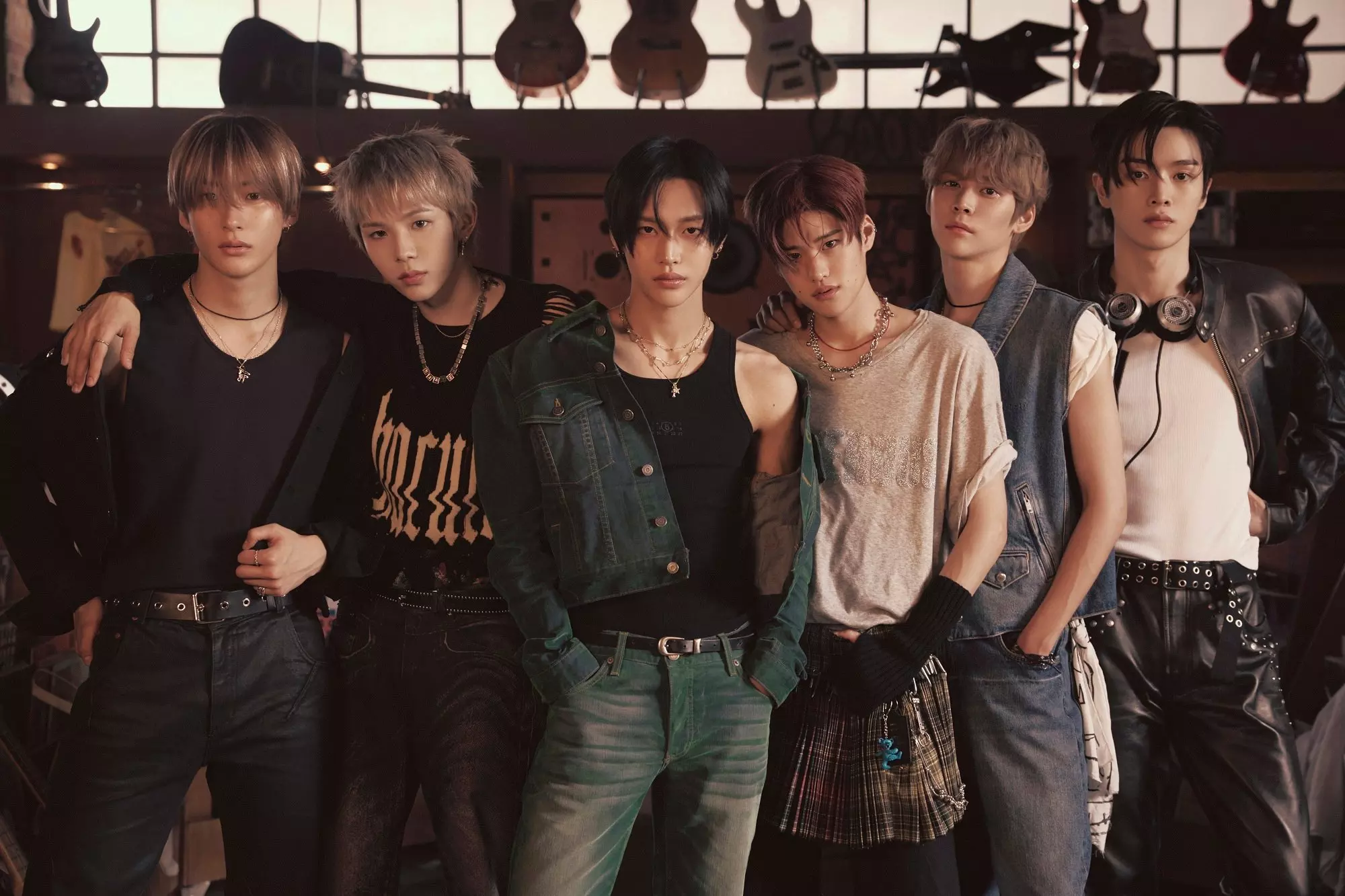2023 has already been a strong year for music-related books: industry insider Tony King’s memoir The Tastemaker: My Life with the Legends and Geniuses of Rock Music, Scott G. Shea’s All the Leaves Are Brown, a comprehensive bio of the Mamas and the Papas, and Paul McCartney’s photo book 1964: The Eyes of the Storm. There’s more to come in the fall, with memoirs due from Bikini Kill’s Kathleen Hanna, Sonic Youth’s Thurston Moore, and Sly Stone, as well as an updated 30th anniversary edition of Michael Azerrad’s classic Come As You Are: The Story of Nirvana.
And that’s just the tip of the iceberg. People love reading about their favorite artists, but a well-written book based around a good story should be capable of holding your attention regardless of your feelings about a performer’s music. It’s also a pleasure to read a book on a well-covered topic that offers a new perspective. And of course, one of the fun things in reading a book about music is that it will undoubtedly prompt you to head off to your favorite streaming site in order to listen to the songs the author has been describing.
Here’s a round up of current titles that range from covering the beat of South Africa to 1990s grunge, from a singer/songwriter who disappeared for 30 years to a new Rock Hall inductee.
Running Up That Hill: 50 Visions of Kate Bush
By Tom Doyle
In 2005, music journalist Tom Doyle was ferried by car to the home of Kate Bush, "somewhere in Berkshire [England]," to interview her for Mojo magazine. The subsequent article used just a fraction of his four hour interview with her. Nearly two decades later, Doyle uses that interview as the core of a fascinating book that offers new insights into the acclaimed, reclusive musician.
Doyle’s book was first published in the UK last year, riding the wave of enthusiasm when Bush’s 1985 single "Running Up That Hill (A Deal With God)," became a surprise worldwide hit, due to its use in the Netflix series "Stranger Things" (swiftly followed up by her recent induction into the Rock and Roll Hall of Fame this year). The "Visions" are presented mostly chronologically, with expected stops at obvious life/career high points, such as the making of each of her albums.
But it’s more than just a listing of greatest hits. Doyle fills out his portrait with excursions into other areas, such as examining the influence of mime/dance artist Lindsay Kemp on Bush’s work, her first foray into live performance with the KT Bush Band (imagine Bush letting loose with "Honky Tonk Woman!"), and her faux pas of asking for Queen Elizabeth II's autograph. Not to mention his blow-by-blow account of Bush’s unexpected return to live performance with a London theater residency in 2014. A highly enjoyable read that’s a midway point between a trivia book and a full biography.
Mud Ride: A Messy Trip Through the Grunge Explosion
By Steve Turner with Adem Tepedelen
From his days as a guitarist in the seminal Seattle alt rock band Green River, to his tenure in long-running Sub Pop Records act Mudhoney (who just released their eleventh album, Plastic Eternity), Steve Turner managed to ride the grunge wave all the way from obscurity to international acclaim and come out the other end still standing.
And what’s most interesting about Turner’s memoir is that it comes from the perspective of someone who was close to the center of the storm, but didn’t have to navigate the pitfalls of fame that befell higher profile acts like Nirvana and Pearl Jam. Turner also carefully unwinds the many intertwining threads of Seattle’s late ’80s-early ’90s music scene, when musical chairs among bands was the norm, to make this a thorough first-hand account of the period.
You'll also learn that '90s rock history could’ve been quite different: Turner says he was offered a position as second guitarist in Nirvana when Dave Grohl joined the band in 1990 (he declined, saying Nirvana was better as a three piece). Instead, Turner and Mudhoney took the road less traveled, and still ended up making a bigger impact than they ever dreamed of (though they still need to have day jobs).
Don’t Tell Anybody The Secrets I Told You
By Lucinda Williams
Lucinda Williams is such a compelling storyteller in her songs, it’s no surprise that her memoir grabs you from its very first page. In a telling pair of contrasting anecdotes, Williams relates how an "older gentleman" affiliated with the music business told her on learning that she was writing a memoir, "Don’t write about your childhood. Nobody wants to read about that." Conversely, a woman at one of Williams’ shows recognized that her childhood experiences were key to her art, asking Williams if she had a rough childhood as she headed backstage after the performance. When Williams nodded yes, the woman replied, "I thought so."
And as her memoir reveals, that turbulent childhood laid the groundwork for Williams' future life and career. The constant moving as her father sought out new jobs around the country naturally led to her feeling more comfortable on the road; a handy attribute for a touring musician. Being the daughter of an acclaimed poet (Miller Williams) helped hone her own lyrical skills. She also writes movingly of struggles her mother, Lucille, had with mental illness. Lucille was a pianist, but was discouraged from pursuing a musical career; instead, the piano became "a joy and a burden at the same time," sold when she fell into a depression, repurchased when she felt better.
Williams faced her own obstacles, coping with her own obsessive-compulsive disorder, trying to find a place for herself when her music was deemed too country for rock and too rock for country, and confronting the sleazier side of the music industry (as when a filmmaker sexually propositions her at a meeting ostensibly to discuss making a video for her song "Right in Time"). Her conversational writing style draws you in, and her incisive observations keep you turning the pages.
Hit Girls: Women of Punk in the USA 1975-1980
By Jen B. Larson
"‘Punk,’ I thought, was overproduced pop songs that sold a style," Jen Larson writes in her book’s introduction, observing that in general, coverage of women in punk still focuses on "a few groups with well-known women," riot grrrl, and little else. Larson’s intention is to delve into punk’s rich history, unearthing "these still-hidden stories [that] aren’t the tales we often hear in the popular punk narrative," celebrating the achievements of these unsung pioneers.
There are some familiar names among the entries: Romeo Void (San Francisco), the Bags (Los Angeles), Lydia Lunch (New York). But Larson has also tracked down acts from more remote outposts — from Anchorage, Alaska (the Anemic Boyfriends) to South Palm Beach, Florida (Teddy and the Frat Girls) — bringing a greater depth to a history where the tendency is to concentrate on the musical developments in major urban centers. The song descriptions will have you heading to YouTube to check out long-forgotten recordings (like the great song by the Welders, from St. Louis, about sexual harassment: "P-E-R-V-E-R-T").
The book also benefits from new interviews with various band members sharing their insights. ("There’s this idea that there were no women of color in the punk movement," says Stoney Rivera of Milwaukee’s Dummy Club, who adds, "Women of color have been in the forefront of music in every genre from day one.") Even punk rock aficionados will find new info in this lively exploration of the period, which also serves up fun bits of trivia, like the Plasmatics’ Wendy O. Williams being the first woman on the cover of UK metal magazine Kerrang! and Vegetarian Times in the same month.
Stomp and Shout: R&B and the Origins of Northwest Rock and Roll
By Peter Blecha
This book opens with a striking image of a skinny, 17-year-old Ray Charles, stepping off the bus in downtown Seattle in 1948. Though knowing no one in the city, within a day of his arrival he was playing at a local club, soon crossing paths with the likes of Quincy Jones, Robert "Bumps" Blackwell, and Ernestine Anderson. It’s a remarkable story that reveals the wealth of talent percolating in what was then considered a provincial backwater — a history that’s been not so much hidden but overlooked, drawn out by a historian who’s long chronicled the Pacific Northwest music scene.
Blecha’s book takes you back to an era not just before "Smells Like Teen Spirit," but before "Come Softly To Me" and "Walk, Don’t Run," the first big hit records to come from Northwest acts (the Fleetwoods and the Ventures, respectively). Blecha draws on the 400-plus interviews he’s done over the years to trace the evolution of the music that came to be known as the "Northwest Sound," which he describes as "a distinctive ‘rude jazz’-tinged mutation" of R&B. From "I Know I Was Wrong" by the Barons (the first NW teenage R&B group to have a hit) to the innumerable bands that put an unmistakable NW stamp on "Louie Louie" (the Wailers, the Frantics, the Kingsmen, et. al.) to the hint of ’90s rock you hear in cult acts like the Sonics, Stomp and Shout finally gives a voice to the musicians, promoters, producers, and entrepreneurs who laid the groundwork for the musical explosions to come.
Rude Girls: Women in 2 Tone and One Step Beyond
By Heather Augustyn
Heather Augustyn tackles a conundrum of the 2 Tone/ska/bluebeat scene of late ’70s-early ’80s Britain: that women were "relegated to novelty status … in the very movement that prioritized equality and unity." As she observes elsewhere, "How strange for bands of five, six, seven men, even though they are Black and white, to sing about unity and never have it dawn on them that there weren’t any women in their new era."
Rude Girls dives deeply into the period, with Augustyn casting her net broadly to include performers who, while not necessarily associated with ska, nonetheless interacted with the movement (such as the members of pop group Bananarama, who collaborated with Fun Boy Three). The extensive interviews make this book especially comprehensive.
A running theme is how virtually all the performers had to constantly push back against the idea that "women don’t play in bands." For Augustyn, their perseverance is something to celebrate, and one of her primary aims in writing the book is to provide inspiration for the future generations. And Rude Girls is certainly a primer for those who want to take the first step. As the Selecter’s Pauline Black so aptly puts it, "If the boys won’t let you join in their game, then sometimes it’s best to invent a new one of your own."
Conform to Deform: The Weird & Wonderful World of Some Bizzare
By Wesley Doyle
There have been numerous books about punk rock, but not as many about the music scenes that developed in its immediate aftermath. Conform to Deform looks at the rise and eventual dissipation of Some Bizzare Record — a label that attracted musicians inspired by punk’s energy, but who wanted to do something more radical musically.
London DJ Stevo (Stephen Pearce) began seeking out "the stranger bands that were around" for his sets, and eventually Some Bizzare Records was born from the acts he championed. Its first release, the 1981 compilation Some Bizzare Album, helped to launch the careers of Soft Cell, Depeche Mode, and The The. Cabaret Voltaire, Einstürzende Neubauten, Coil, Swans, and Psychic TV were later drawn to the label.
Doyle takes the oral history approach to the story, and his coup is in getting the enigmatic Stevo to agree to an interview, and his idiosyncratic approach to the music industry (such as misspelling "bizarre" because "I like ambiguities") means there’s no shortage of insider anecdotes and great one-liners. It’s also a thoroughly entertaining look at an era when the music industry was a lot more freewheeling.
"It’s missing the mavericks, and I think Stevo was a proper maverick," said music journalist Colin Schaverien. It’s also a cautionary tale, illustrating how starting out with a huge success (in this case, Soft Cell’s "Tainted Love") isn’t going to guarantee your company a smooth ride.
Wayward: Just Another Life to Live
By Vashti Bunyan
Wayward (first published in the UK last year, and now in the U.S. in paperback) is the story of a woman who was determined to leave the music industry behind — only for it to catch up with her 30 years later. An acoustic performer frustrated by the machinations of the music industry in 1960s London, Bunyan left the city with her boyfriend, traveling by horse-drawn cart. There’s a dreaminess to Bunyan’s writing, even as she describes the hardships of life on the road, subsisting on porridge and brown rice for so long that the sweets on display at a candy store look like "a psychedelic vision."
There’s also a recurrent theme of how women artists are silenced; the male friend who tells Bunyan "a girl should not be singing a [Bob] Dylan song"; her first manager Andrew Loog Oldham’s insistence that she record a Jagger/Richards number instead of an original song (he later conceded her song was the better choice); her boyfriend’s demand that she stop writing "those miserable little love songs."
Nonetheless, the songs she did record attracted the attention of Joe Boyd, who produced her 1970 album, Just Another Diamond Day. And when it’s reissued in the 21st century, its rediscovery is all the sweeter for Bunyan, who’s finally inspired to make music once again: "I picked up my guitar and it no longer gave me the sounds of failure and sadness." It’s the story of a woman rediscovering her artistry.
South African Popular Music
By Lior Phillips
When first sitting down to read this book, turn first to page 163 and listen to each of the "Essential Tracks" listed there to get a basic grounding in the genre you’re about to explore (the book is part of Bloomsbury’s 33 1/3 "Genre" series). This interactive element is retained throughout; at the end of each chapter is a "micro playlist" with further song recommendations (and where to find them online), a feature that helps this concise history really come to life.
Acknowledging her subject’s complexity, Lior Phillips describes her book as offering a "series of snapshots, scenes from which the larger picture can be stretched." And while noting that the evolution of the country’s music is inextricably "tied to the anchor of apartheid," this is also a story of triumph over adversity and oppression, and the key role played by the music.
From the birth of one of the world’s most popular songs, "Mbube," by Solomon Linda’s Evening Birds (later to become "Wimoweh" and "The Lion Sleeps Tonight") to today’s purveyors of gqom (She Madjozi) and amapiano (DJ Kelvin Momo), this is a book celebrating a music that has inspired activism and delivered sheer joy.
[Editor's note: Lior Phillips is a GRAMMY.com contributor]
Lunacy: The Curious Phenomenon of Pink Floyd’s Dark Side of the Moon, 50 Years On
By John Kruth
The 50th anniversary of Pink Floyd’s landmark album The Dark Side of the Moon naturally comes with the release of the obligatory lavish box set. But there’s also a new book that takes you deeper inside the creation of this enigmatic work and its cultural reverberations that have echoed across the decades. John Kruth sets the stage nicely, with a concise summary of the band’s story before digging into the album track by track. And he also finds some unexpected byways to explore.
There’s an entire chapter on the "Cultural History of the Moon," for example, in which astrophysicist Dr. Matthew Bobrowsky informs us that there actually isn’t a "dark side of the moon." A chapter on the history of the concept album reaches all the way back to Woody Guthrie’s Dust Bowl Ballads Vol. 1 and Vol. 2 ("often considered the original concept album") and Luke the Drifter by Hank Williams. It’s also packed with a wealth of detail, such as a dissection of Clare Torry’s cataclysmic vocals on "The Great Gig in the Sky" that climaxes with a (possibly apocryphal) story of a woman who claimed that the singer’s ululations eased her childbirth pangs. You also learn the band added "The" to the album’s title to distinguish it from another record also entitled Dark Side of the Moon, released in 1972 by British blues outfit Medicine Head.
Kruth adds that the band would never again "achieve this level of camaraderie, cooperation, and collaboration." It underscores an often overlooked aspect about the album; how its very success "trapped us creatively" in guitarist David Gilmour’s words. Kruth’s book celebrates the music, but also points out there’s a price to be paid in creating a masterwork.
From "Stranger Things" To "Beef": How TV Shows Are Giving New Life To Pop Songs From The Past














